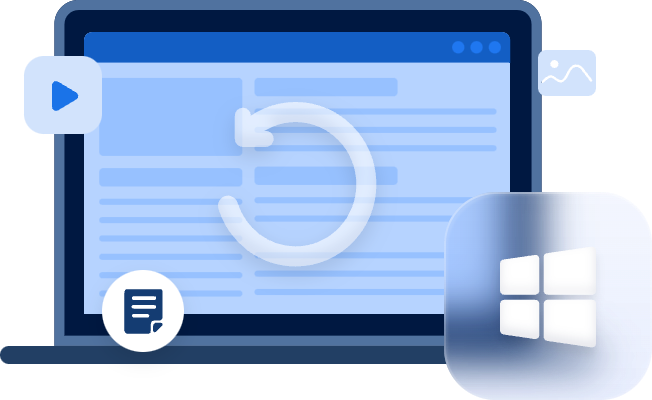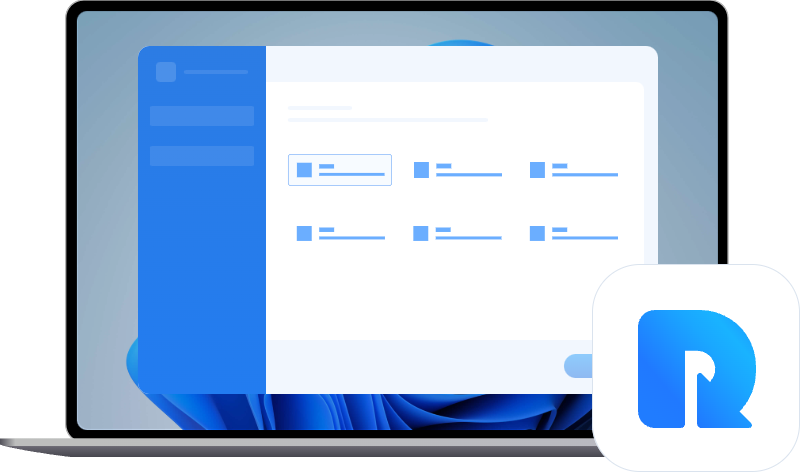Decoding Disk Cleanup: Is it Safe to Delete Windows Files?
Delve into the safety considerations of deleting Windows files through disk cleanup. Explore reasons for cleanup, assess associated risks, and master file recovery with MyRecover. Explore alternative deletion methods for nuanced digital maintenance.
Why Users Need to Delete Windows Files in Disk Cleanup
Deleting Windows files through disk cleanup is essential to combat digital clutter. Over time, systems accumulate temporary files, cache, and remnants of software installations, leading to reduced storage space and potential performance issues.
Disk cleanup ensures optimal performance and efficient resource utilization by reclaiming valuable storage space and maintaining a streamlined computing experience.
Potential Risks of Deleting Windows Files in Disk Cleanup
While disk cleanup is intended to enhance system performance, users must be aware of potential risks:
1. Data Loss Risk:
Deleting files may inadvertently remove crucial data, leading to irrevocable loss if not executed cautiously.
2. System Instability:
Removing certain system files can disrupt the stability of the operating system, causing errors, crashes, or malfunctions.
3. Application Issues:
Deleting shared files used by applications may result in functionality issues, affecting the performance of installed software.
4. Loss of Restore Points:
Disk cleanup can eliminate system restore points, limiting the ability to roll back the system to a previous stable state.
Users should approach disk cleanup with caution, reviewing items marked for deletion to prevent unintended consequences.
It's Not Safe: Recovering Files After Disk Cleanup with MyRecover
Accidental file deletion during disk cleanup doesn't have to be a nightmare. MyRecover comes to the rescue with its advanced data recovery features:
1. Download and Install MyRecover:
Begin by downloading MyRecover from the official website and installing it on your Windows system.
2. Launch the Application:
Open MyRecover and select the drive or location where files were deleted during disk cleanup.
3. Initiate a Scan:
Allow MyRecover to perform a comprehensive scan, identifying recoverable files post-disk cleanup.
4. Preview and Select Files:
MyRecover presents a list of recoverable files. Preview them to ensure accuracy and select the ones you wish to recover.
5. Recover to Desired Location:
Click on the "Recover" button, choose a destination for the recovered files, and let MyRecover restore your valuable data.
Alternative Ways to Delete Windows Files Without Using Disk Cleanup
For users hesitant about relying solely on disk cleanup, alternative methods for file deletion provide flexibility:
1. Manual Deletion:
Navigate through your system directories manually and delete unnecessary files, offering greater control over the deletion process.
2. Storage Sense:
Utilize Windows' built-in Storage Sense feature (available in Windows 10 and 11) to automatically free up space by removing temporary files and Recycle Bin contents.
3. Third-Party Cleanup Tools:
Consider reputable third-party cleanup tools with advanced features and customization options for efficient file deletion.
4. Selective Deletion:
Instead of relying on broad disk cleanup, selectively delete files based on their nature and relevance, minimizing the risk of accidental deletions.
In Conclusion:
In the quest for an optimized digital space, the question of whether it's safe to delete Windows files in disk cleanup demands a delicate balance. While the risks are real, leveraging tools like MyRecover for file recovery and exploring alternative deletion methods ensures a nuanced approach to system maintenance.
Striking this balance guarantees a cleaner, more efficient digital environment without compromising data integrity.
FAQs:
1. Can MyRecover retrieve files deleted by disk cleanup if I don't have a backup?
Yes, MyRecover can recover files deleted by disk cleanup even without a backup. Its advanced scanning capabilities identify and restore deleted files effectively.
2. Are there specific files I should avoid deleting in disk cleanup?
Exercise caution with system files, application-related files, and those associated with crucial functions. Avoid deleting files unless you are certain of their non-essential nature.
3. How often should I perform disk cleanup on my Windows system?
Regular disk cleanup is recommended, but exercise caution and review items marked for deletion to prevent unintentional data loss. Adjust the frequency based on your system usage and storage needs.


